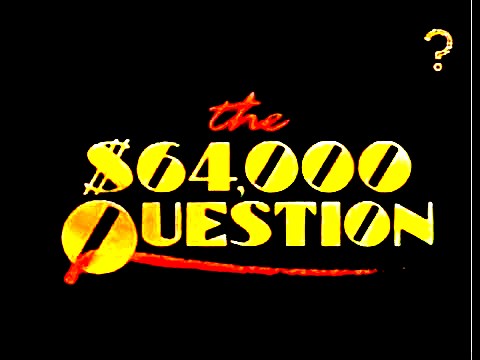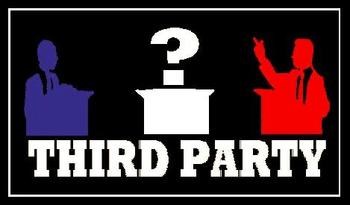Ending Life Support
disinherited.com was initially consulted in this most interesting court case only days before a decision had been made to end Kenny Ng’s life.
I retained Candace Cho, my mentee, to act in the matter and shadowed her handling of the court action, including sitting at counsel table while she ably argued the case on behalf of the family, opposing the wife’s application to end Kenny’s life support.
The reporter, Ian Mulgrew sat in the court room for most of the legal submissions and wrote the following balanced view of this intriguing questions:
What is in the best interest of the patient, Kenny Ng- to live or to die, and who should make that decision?
Brain injured man at centre of legal battle over whether to remove feeding tubes
A car accident left former math whiz in a vegetative state, now his wife and family are at odds over his fate
BY IAN MULGREW, VANCOUVER SUN DECEMBER 5, 2012
http://www.vancouversun.com/images/socialbuttons/btn_comment_arrow.jpg); position: relative; width: 6px; font-family: arial, verdana, ‘lucida grande’, sans-serif; background-position: 0% 0%; float: left; height: 5px; font-size: 11px; top: 6px; left: 1px”>
0
A 57-year-old Vancouver man who has languished in a coma for seven years has become the focus of a tragic family tug-of-war in B.C. Supreme Court over whether he should live or die.
Photograph by: Steve Bosch , PNG files
A 57-year-old Vancouver man who has languished in a vegetative state for seven years has become the focus of a tragic family tug-of-war over whether he should live or die.
His wife Lora wants medical staff to remove Kenny Ng’s feeding tubes, which will cause him to starve to death over about two weeks.
His parents, siblings and relatives, however, have asked B.C. Supreme Court Justice Miriam Gropper to intervene and keep Ng alive in the hope he can benefit from recent neuroscience medical discoveries.
They argue Ng’s wife should be replaced as the person making decisions about his long-term care at the George Pearson Centre, since he may qualify for pioneering treatments by celebrated brain researcher Adrian Owen.
“They believe that Dr. Owen’s study is exactly what Kenny has been waiting for over the last seven years,” the family’s lawyer Candace Cho said. “And knowing Kenny’s belief in technology and progress, they believe that Kenny would jump at the chance at participating in the study.”
On Tuesday, she played for the judge a short, heart-rending video of the man in his hospital bed reflexively responding to visitors.
“The fact is, Kenny is very much alive,” Cho maintained.
“He is breathing on his own, able to move his head around, make noises, open his eyes, and the only thing that the hospital is doing to keep him alive is to feed him nutrition and fluids.”
Several members of Ng’s family sat stoically on one side of the courtroom, his wife inscrutable on the other.
Ng was described as a former math-whiz who graduated from Sir Charles Tupper secondary. He became an electrical engineer and started his own successful business, Phase Technology, involving the design, manufacture and sale of petroleum analysers.
His predicament is reminiscent of a recent Alberta case involving a young girl the courts ordered to be taken off life-support in spite of her parents’ wishes.
The judges in that province endorsed the view that life support should be terminated where medical specialists unanimously believe the patient was without awareness or hope of recovery and invasive treatment provided no potential benefit.
Lawyers for Ng’s wife say that’s the situation here, although the family insists otherwise.
“This is not the case of a brain-dead patient on ventilators and any type of machine imaginable to keep him alive, with absolutely no chance of recovery and a family that is holding onto his life for their own benefit and comfort,” Cho said.
Lawyers for Ng’s wife argued, though, that is exactly the case — loved ones who can’t say goodbye making “outrageous allegations” while hoping for a miracle.
“It’s an affront to (Ng’s) human dignity,” said lawyer David Dahlgren.
Ng suffered traumatic brain injuries on Sept. 9, 2005, during a car accident in Washington State that killed his eldest son, injured his two other children and left his wife badly hurt. Since then, he has been minimally conscious.
Over the last year, Ng’s family told the court his wife has become estranged from them and no longer committed to doing what is in his best interest.
“Kenny’s estate was worth approximately $3.3 million in 2006,” Cho said, arguing that financial gain was a factor.
Mrs. Ng’s lawyers dismissed such “offensive” claims as defying belief, given Mrs. Ng’s devotion to her husband’s care — she hired an expert acupuncturist and took Ng on outings to a mall and the local Home Depot to stimulate him.
She hoped he would recover but came to realize it was futile and decided to have the tubes providing food and fluid removed after Ng’s care team concluded such a decision was “medically appropriate.”
“We’re here today, my lady, because the [family] are regrettably or sadly unable to accept the reality of Mr. Ng’s condition,” lawyer Gary Fraser said.
“They cannot let go of Mr. Ng for their own personal reasons …. They simply can’t let go.”
Shortly after the horrific accident, Fraser explained, doctors said it would be appropriate to remove Ng’s feeding tubes.
Lora Ng didn’t’t act on that advice but waited to see if her husband improved. She made the decision to remove the tubes “after wrestling with it for almost seven years,” Fraser added.
“It wasn’t made in haste, it wasn’t rushed.”
But the family insisted letting Ng die would be wrong given the startling work in neuro-imaging by Dr. Owen, which proves some patients suffering from locked-in syndrome, or who have lain in vegetative states for years, may be more conscious than we realize.
In 2010, Owen, then at the University of Cambridge, UK, communicated with a man who had been in a coma for five years.
A year later, the University of Western Ontario lured him to Canada with $20 million in funding.
“Since arriving,” the doctor said in a report filed with the court, “we have seen 12 patients in Ontario (and one from Alberta) and, of these, two are able to communicate repeatedly using our (functional) MRI technique. In one case (a male traumatic brain injury patient who had been repeatedly diagnosed as vegetative for 12 years), we were able to ask the question ‘are you in any pain?’ and twice decoded the answer ‘no’ using our technique.”
The doctor continued: “I have not examined Mr. Ng, so I cannot judge whether he would be suitable for inclusion or not, but considering his clinical diagnosis (minimally conscious state), his age, and the nature of his injury I see no reason why he would not be an ideal candidate, subject to an assurance from his referring clinician that he would be safe to travel the distance.”
If the court intercedes, the family said it hopes to have Ng assessed by Owen’s team to see if he can be admitted into a new research study involving the groundbreaking techniques.
Lawyer Dahlgren said the court has no reason to step in: “Mr. Ng does not need protection in these circumstances.”
Justice Gropper reserved her decision.
imulgrew@vancouversun.com
Read more:http://www.vancouversun.com/health/Brain+injured+centre+legal+battle+over+whether+remove+feeding+tubes/7652011/story.html#ixzz2EEEiuErD
– See more at: http://www.disinherited.com/blog/ending-life-support-ng-case#sthash.SAHZHFNW.dpuf






